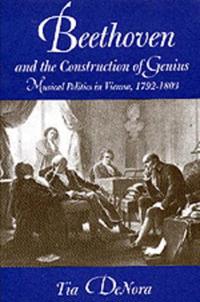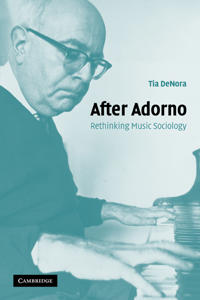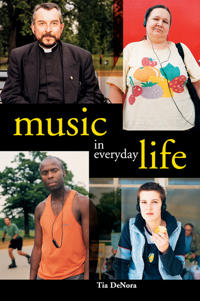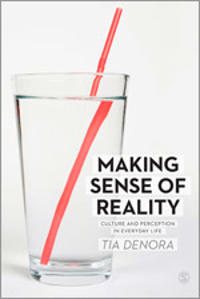Beethoven and the Construction of Genius (Häftad)
avTia DeNora
ISBN: 9780520211582 - UTGIVEN: 199711In this provocative account Tia DeNora reconceptualizes the notion of genius by placing the life and career of Ludwig van Beethoven in its social context. She explores the changing musical world of late eighteenth-century Vienna and follows the activities of the small circle of aristocratic patrons [...]
After Adorno (Häftad)
avTia DeNora
ISBN: 9780521537247 - UTGIVEN: 200311Theodor W. Adorno placed music at the centre of his critique of modernity and broached some of the most important questions about the role of music in contemporary society. One of his central arguments was that music, through the manner of its composition, affected consciousness and was a means of s[...]
Music in Everyday Life (Häftad)
avTia DeNora
ISBN: 9780521627320 - UTGIVEN: 200006The power of music to influence mood, create scenes, routines and occasions is widely recognised and this is reflected in a strand of social theory from Plato to Adorno that portrays music as an influence on character, social structure and action. There have, however, been few attempts to specify th[...]
Making Sense of Reality (Pocket)
avTia Denora
ISBN: 9781446202005 - UTGIVEN: 2014-09What is reality and how do we make sense of it in everyday life? Why do some realities seem more real than others, and what of seemingly contradictory and multiple realities? This book considers reality as we represent, perceive and experience it. It suggests that the realities we take as 'real' are[...]
Music Asylums (Pocket)
avTia Denora
ISBN: 9781472455987 - UTGIVEN: 2015-02Taking a cue from Erving Goffmana (TM)s classic work, Asylums, Tia DeNora develops a novel interdisciplinary framework for music, health and wellbeing. Considering health and illness both in medical contexts and in the often-overlooked realm of everyday life, DeNora argues that these identities are [...]







